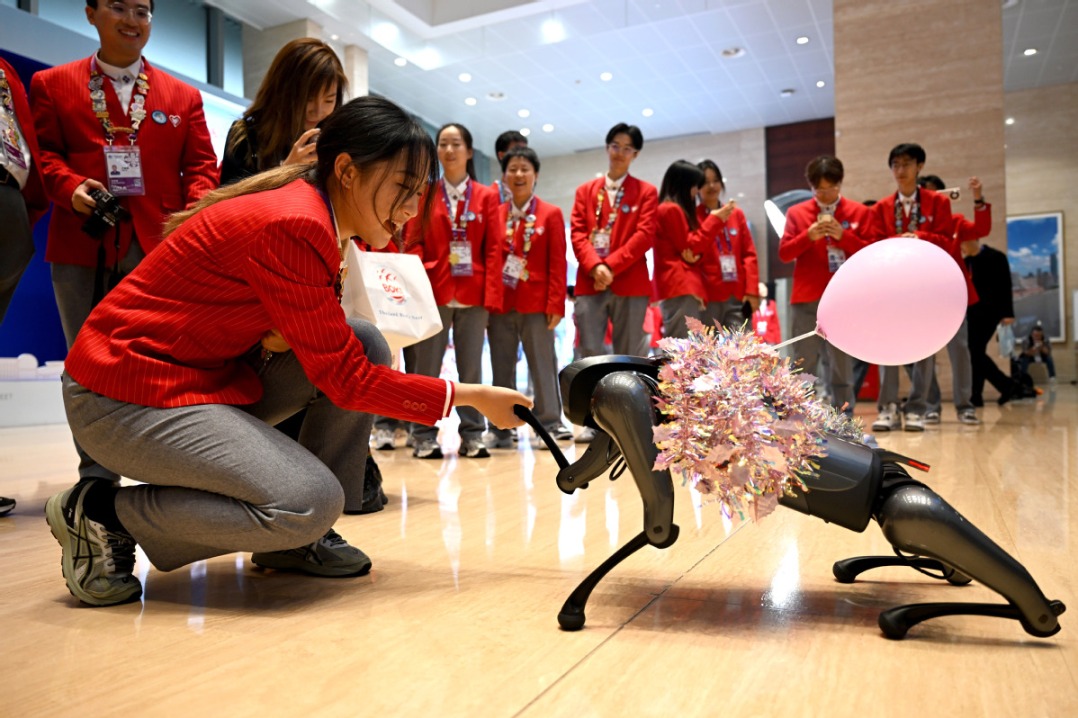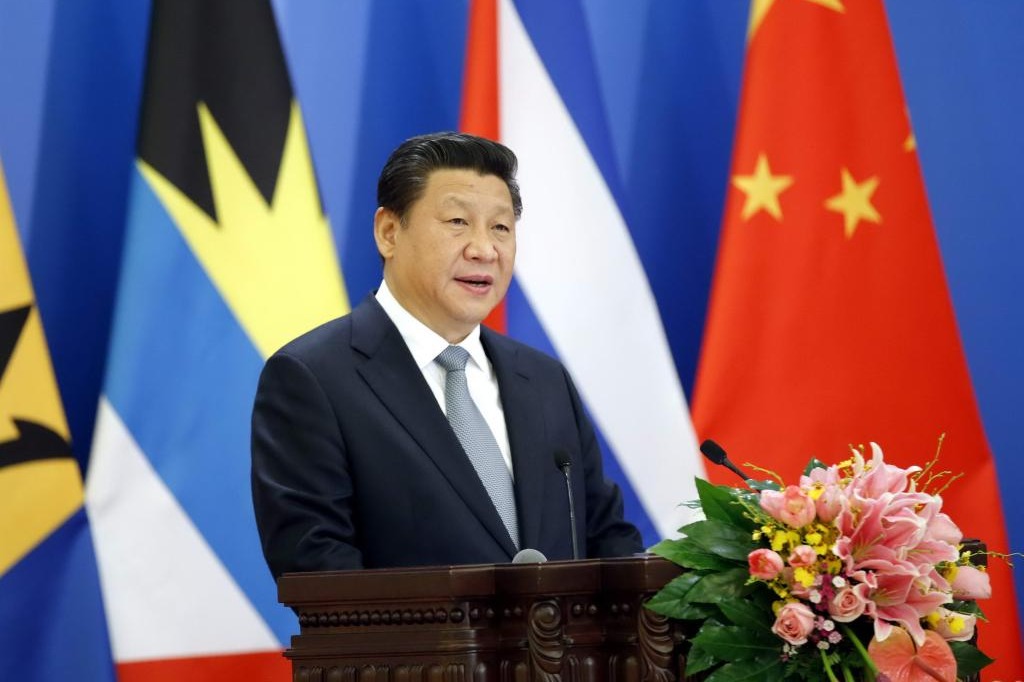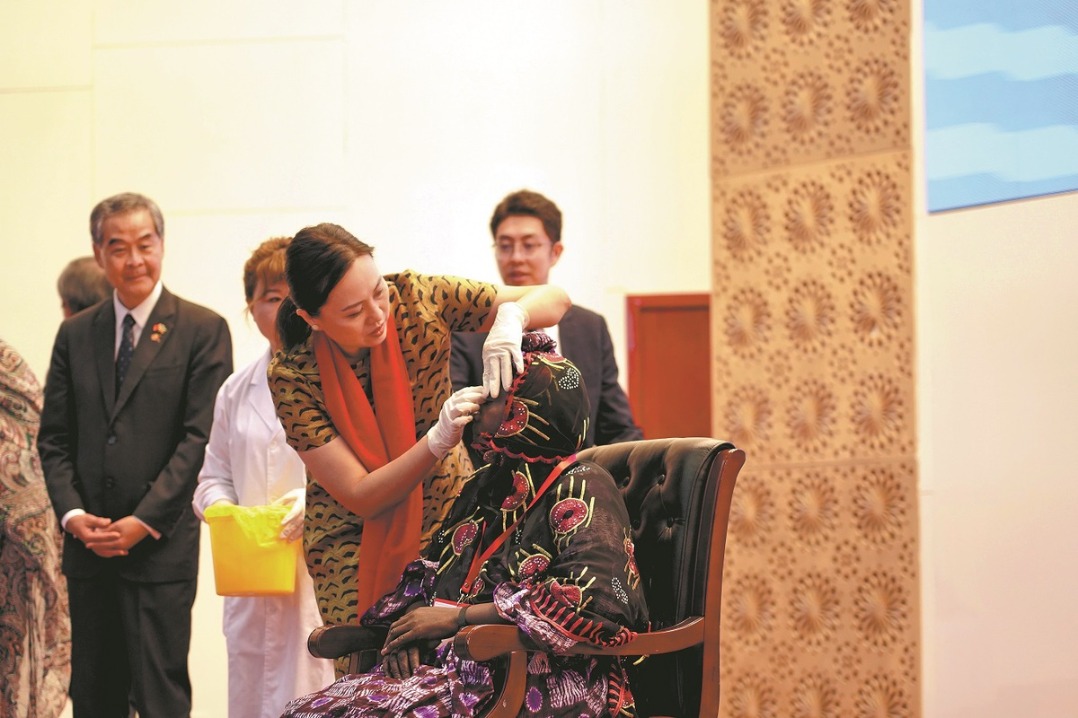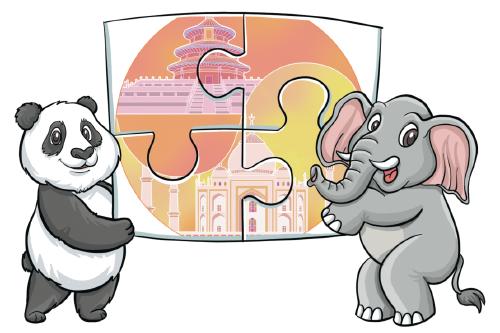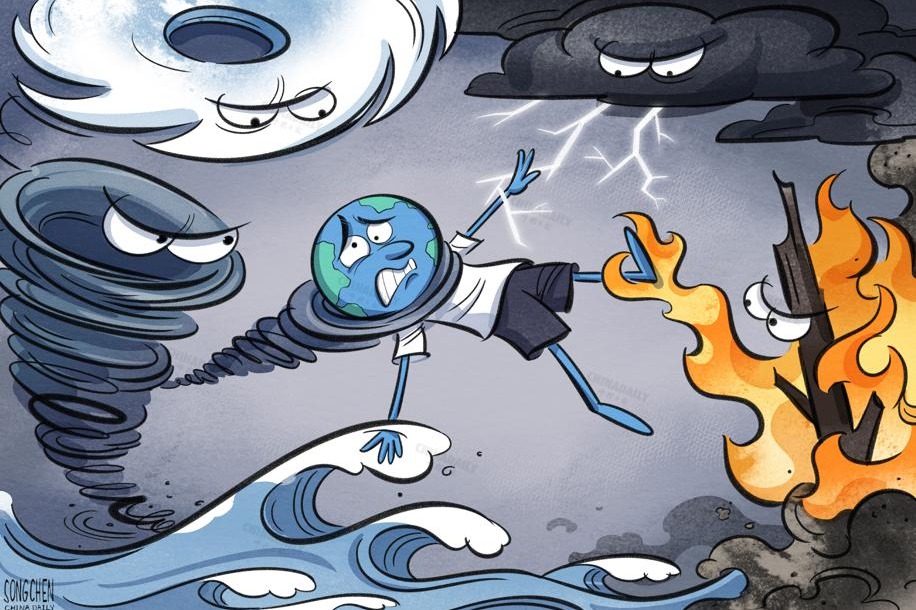Summit offers road map for building a fairer world order

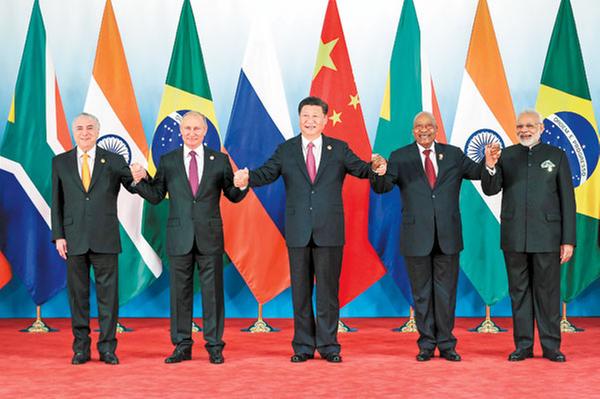 |
| President Xi Jinping and other leaders of BRICS countries pose for a group photo before the Ninth BRICS Summit in Xiamen, in Southeast China's Fujian province, on Monday. The five leaders then took up many issues at the start of the event. WU ZHIYI / CHINA DAILY |
On Sunday, at the Business Forum of the 9th BRICS Summit in Xiamen, Xi made the same reference, only this time he said BRICS is not a talking shop, but "a task force that gets things done".
The delicate contrast in rhetoric is a thought-provoking hallmark of what China, a relative newcomer to the stage of global governance, is seeking. From Xi's two major speeches before the release of the Xiamen Declaration and dozens of cooperation projects endorsed thereby, as well as "BRICS Plus" discussions, there is an explicit Chinese eagerness to maneuver actual changes the world desperately needs in these times of uncertainties.
Obviously, this aspiration is no longer China's alone, as it has been embraced by the other BRICS members as well, and the five emerging economies present in Xiamen under the "BRICS Plus" framework. It derives from a broadly felt imperative to address longstanding injustices in global governance, as the current world order is yet to acknowledge, let alone appreciate, the contribution of developing countries. But, as Xi stated, China and its BRICS partners have no intention of overthrowing the world order. They just want it to help make it fairer, democratic.
BRICS countries have their own troubles, at home and among themselves, which once prompted some to say the nascent grouping was losing luster. But despite that, the BRICS countries, thanks partly to intra-BRICS cooperation, have continued to outperform most of the rest of the world economically. What BRICS leaders agreed upon in Xiamen, including both framework documents and specific cooperative programs, can only consolidate such dynamism.
The "BRICS Plus" mechanism, which was introduced as a formal component of the annual event at Beijing's proposal, is a logical outreach commensurate with the grouping's ambition to make its own achievements deliver wider benefits. By engaging more emerging economies, which usually share extensive common interests in development-related areas, BRICS can indeed make global impacts, and build a stronger case against the anti-globalization trend in some economies.
At the threshold of a new BRICS decade, the Xiamen summit has come up with an inspiring road map for the member states. Whether BRICS can continue growing as it has done, however, rests heavily on how well its members honor their vow of solidarity.
- BRICS countries: playing a vital global role
- Full text: Stronger BRICS Partnership for a Brighter Future
- Xi: China supports South Africa's hosting BRICS Summit in 2018
- Xi : la coopération des BRICS est importante dans un environnement mondial complexe
- Xi expects Business Council, NDB to do more for BRICS cooperation


















